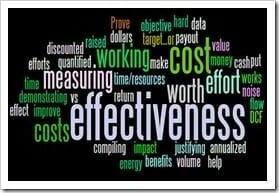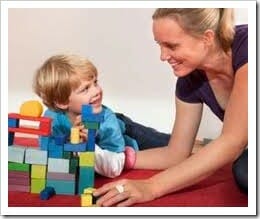
Children spend the majority of their most valuable childhood years in educational institutions. Think about it this way: out of 7 days a week, 5 of them are dedicated to schooling. If the kids are also stimulated in other ways, they may even spend some of their weekends in educational endeavors.
Return on investment
Much like other investments, the decision whether to invest or not, and in what to invest depends on the potential return. If the return is high, it is considered a good investment. If the return is low, it is not a very good investment, and if there is likely to be a loss, it is a terrible investment.
Most parents do not understand that education it is an investment. They send their kids to school because it is the law (at least in most places) or because other people do it. Some parents send their kids to school because they cannot teach them at home, or because they would rather go to work than home-school, or because they cannot think of any other way of giving their kids the skills they need. Often, parents do not give much thought about the merit of that particular school for their particular child.
Do not get me wrong, I believe school is the best format we have today for passing knowledge onto our children. But using this option without maximizing the investment is a bit of a waste of time, money and energy. It is rather similar to banging your head on a wall and then complaining it hurts. Picking the right school for your child is one of the best ways to get a high return on your school investment.
There are other ways to increase your returns on your investment even more. Most of them require you to invest in yourself as a parent and as a person. They involve you being a role model for your child. But the often times, simply changing one factor (such as your child’s school) is enough to make your child shine.
I have been doing assessments with children for more than 25 years and I often find that kids just need a different environment. Let me tell you about Ella to illustrate my point. Ella was a 6 year old girl who was struggling in school. She went to a private school for which her parents paid a lot of money. Ella was a very smart girl, sharp and bright. But she was a bit different. She liked to move around a lot.

The school was unwilling to step in and solve the problem so Ella’s mom was left to struggle with it on her own. Every morning, she had to convince Ella to go to school. She tried explaining, convincing, bribing and even punishing. Ella cried and refused to go to school. Every 2 or 3 days, mom went to school and tried to reason with the teacher, with the head of the junior school, with the deputy, with the principal, but nothing changed.
I hear a very similar story from many parents who come to see me. Most of them send their kids to private schools. Many such schools prefer kids that are mainstream, “normal” or what I call “average”. They want their marks to look good and obedient kids that make their lives easy. They make sure the money you pay them works to their advantage. If they do not need to some kid who is different, they have more money for fancy uniforms for the sport team.
Do not get me wrong, this can happen in public schools as well. I spoke with a teacher in one of the best public schools in our area who told me that 80% of their students do private tutoring. The teachers at the school were asked by the principal not to give the kids homework, because they go to tutoring straight after school. They do not finish until 7pm, at which time they have to finish their tutoring homework, and so they do not have any time to do their school homework. Do you understand why this school is regarded as one of the best public schools in their area?
Parents who send their kids to public school and pay an extra $1000 a month for private tutoring make the school look perfect! The tutor teaches what the kids are supposed to learn at school!
But what about the 20% who cannot afford private tutoring? Or those who do not agree that kids should be studying until 7pm?
Luckily, Ella’s parents were creative and wanted more for her. They came for an assessment with me because they wanted to find out if the school’s claim that Ella needed psychologist intervention was correct. I assessed Ella only found a free spirited, gorgeous girl, who was sensitive and sharp with high emotional intelligence. As soon as her parents moved her to another school, she was perfect and smart once again. She was bubbly and happy and would get up early, talking excitedly about going to school.

Sometimes the teacher is the problem. In this case, you can always ask to have your child moved to another class. You might be thinking, “She has to be able to manage with any teacher”. No, she doesn’t!
There is a point at which the damage cannot be fixed. Neither you nor I can tell at what point it is too late. Every child has a store of motivation. We never know when it will be so depleted that the kid will never go back to being the happy child they were before. So my suggestion, do not try to find that point!
Do you know how many kids I see, with special education needs who were once smart, curious, fantastic kids?
Too many!
They simply gave up on the system because their parents and their teaches thought they had to be able to manage with every teacher.
I have received a lot of requests to write about ways to pick a good school for your child. Remember, we are not looking for ‘a good school’ or even the ‘best school’ because that means nothing at all. You have to find a ‘good’ and ‘best’ school for your child. The match between your child’s needs, personality, life style, environment of living and family philosophy, to the school’s way of doing things, is what is most important.
I know fantastic schools that do not suit all the kids. Schools have strengths and weaknesses. For some kids one school’s weakness can be an advantage and while for another it will be a disadvantage. Here is an example: big schools are a risk for kids that feel like they are just a number. There are so many kids to take care of they sometimes feel that they cannot ask for anything out of the ordinary.
On the other hand, it has many teachers and many subjects to choose from. There are more chances of having extra activities and doing things that are out of the ordinary or special. If the school wants to put on a show, they can ask for 1$ from each kid. If it was a small school, they would have to ask for $10 to make it worthwhile.
Small schools on the other hand are more personal but have less resources. There are not many choices with regards to teachers, there is only 1 class for each grade (so no options for changing teachers), and when your child needs special treatment, the school cannot afford it.

Despite the benefits, this type of school attracts kids who did not manage at other schools. They need private tutoring and they often lack social skills. A small school limits their social option and social skills decline even further.
There is no good or bad. Each school offers strengths and weaknesses. The important thing is to focus on your needs and the needs of your child, and how the school fits with them.
Join me next week for a formula you can use when considering your child’s school. Find out how to make sure you get the highest return on your investment.
Ronit
This post is part of the series How to Choose the Best School for Your Kids:
- How to Choose the Best School for Your Kids: Return on Investment
- How to Choose the Best School for Your Kids: The Formula
- How to Choose the Best School for Your Kids: Questions to Consider











